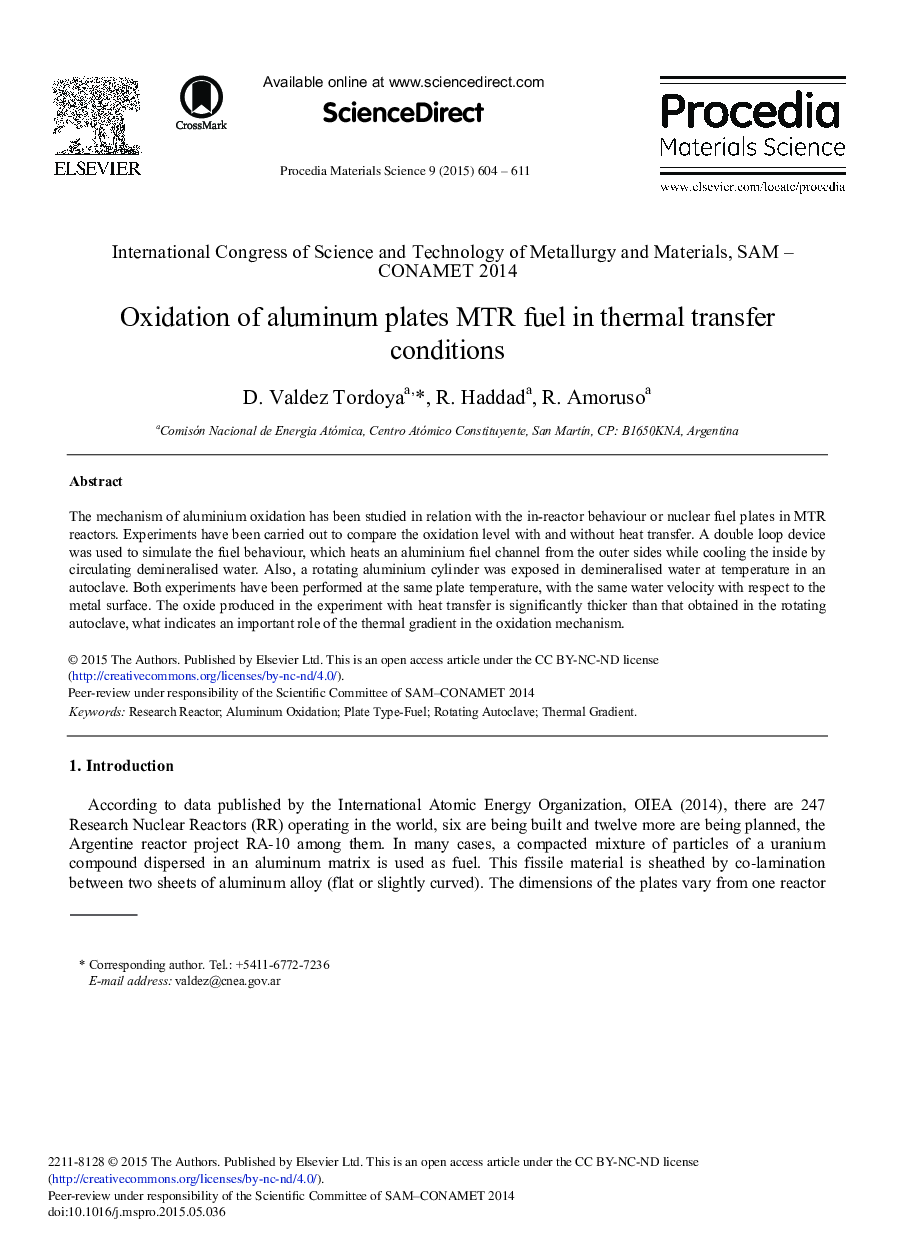| Article ID | Journal | Published Year | Pages | File Type |
|---|---|---|---|---|
| 1634667 | Procedia Materials Science | 2015 | 8 Pages |
The mechanism of aluminium oxidation has been studied in relation with the in-reactor behaviour or nuclear fuel plates in MTR reactors. Experiments have been carried out to compare the oxidation level with and without heat transfer. A double loop device was used to simulate the fuel behaviour, which heats an aluminium fuel channel from the outer sides while cooling the inside by circulating demineralised water. Also, a rotating aluminium cylinder was exposed in demineralised water at temperature in an autoclave. Both experiments have been performed at the same plate temperature, with the same water velocity with respect to the metal surface. The oxide produced in the experiment with heat transfer is significantly thicker than that obtained in the rotating autoclave, what indicates an important role of the thermal gradient in the oxidation mechanism.
